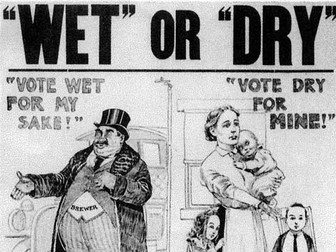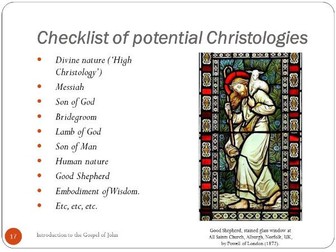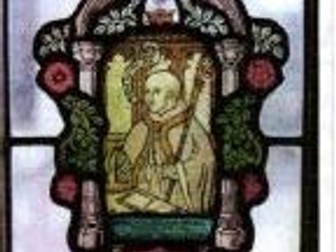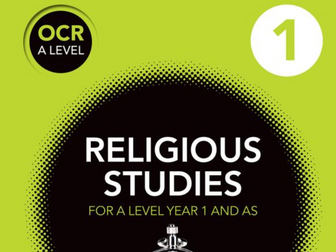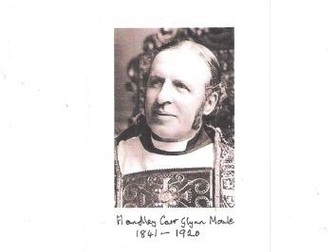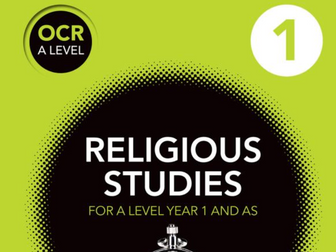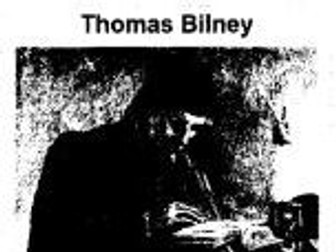Bundle

Prohibition
This bundle includes a series of lessons on Prohibition. The first looks at the origins of the movement, the second on its immediate impact of the USA and the third explores why it failed. Each lesson comes with a worksheet and an accompanying PowerPoint, which includes aims, objectives, differentiated outcomes, starter, mini plenary and plenary. These resources are pitched at foundation and core students, but the PowerPoints also contain Oxford and Cambridge past paper questions and student mark schemes. For more information, please click on the individual lesson.
Kind Regards
Roy
Bundle

Prohibition
This bundle includes a series of lessons on Prohibition. The first looks at the origins of the movement, the second on its immediate impact of the USA and the third explores why it failed. Each lesson comes with a worksheet and an accompanying PowerPoint, which includes aims, objectives, differentiated outcomes, starter, mini plenary and plenary. These resources are pitched at foundation and core students, but the PowerPoints also contain Oxford and Cambridge past paper questions and student mark schemes. For more information, please click on the individual lesson.
Kind Regards
Roy

Introduction to the Gospel of John
This PowerPoint presentation offers an introduction to the Gospel of John, by focusing on key introductory topics, such as authorship, the distinctiveness of John's Gospel, a 'spiritual Gospel,' comparison with the synoptic Gospels, Johannine Christology, and High Christology. It includes links to excellent online resources on John's Gospel, such as Bibledex and Mark Goodacre's NT podcasts, as well as offering some relevant classroom tasks. It is useful for A-Level specifications such as Edexel or Cambridge Pre-U Philosophy and Theology, as well as sixth form General RE programmes.

GCSE Options PowerPoint
We have just moved from OCR to Edexcel, so I have adapted the one I did for our previous board. I have also added additional topics that are specific to Edexcel such as social responsibility and the electoral system.
The ppt has been cleaned up a bit as well and I have added a statement from the University of Cambridge about subjects they suggest students have as backing.

John Alcock (c.1430-1500) English Bishop
John Alcock was born in Beverley, Yorkshire.and educated at Cambridge University. His greatest achievement was the building of Jesus College,
Cambridge which he established on the site of the former Convent of St. Radegund.
He made a rapid rise in both the church and the state.
1461 he was made dean of St. Stephen’s Chapel , Westminster.
1462 was made Master of the Rolls.
1470 he was sent as ambassador to the Crown Court of Castile.
1472 8th January, nominated to see at Rochester
15th March, consecrated Bishop of Rochester
1476 15th July, transferred to see of Worcester
1486 6th October, moved to see at Ely
H e was the first president of the Council of the Marches in Wales from 1473-1500.
H e was Lord Chancellor twice in 1475 and 1485/7. On 7th November 1485 he opened King Henry VII’s Parliament.
He was also tutor to Edward V.
John was one of the leading pre-Reformation divines. He was a a man of deep learning and had great proficiency restoring many churches and colleges as an architect.
Source
Wikipedia
undefined

OCR RS A Level: 40/40 Soul, mind and body full essay plans
These notes provide everything you need to get an 40/40 or a high A in Soul, mind and body questions. The plans are clear, easy to read and colour-coded so you can see AO1 and AO2. I’ve been tutoring OCR RS A Level for over a decade, and I have a degree in Theology from Cambridge.
These aren’t textbook-style notes explaining the thinkers. Don’t download if you don’t understand the main thinkers already! These notes cut straight to the point and give you 40/40 essays for all possible questions on soul, mind and body for the OCR A Level. As with all OCR RS topics, there are a limited number of possible questions from the specification, and this document gives you A Grade essay for all possible question, including on the tricky questions on “category error” and soul as “metaphor”.
These plans use a structure of six shortish paragraphs, with two AO1 and four AO2. You could, instead, have paragraphs that mix AO1 and AO2. Whatever you do, two thirds of your essay should be two thirds AO2 because two thirds of the marks are AO2.
There are many other strengths and weaknesses of these theories, this is just one way of writing 40/40 essays. You may have to adapt a plan to the exact wording of the question set, but in OCR RS there are a small number of possible question themes and these plans cover all those themes, if not the exact wording of every possible question.
You may get a question focusing on materialism vs dualism, Plato vs Aristotle, the mind-body problem as a “category error” and if the soul is a “metaphor”. These four plans cover all these possible questions to A* standard.

Handley Moule, former Bishop of Durham (1841-1920)
Handley Carr Glyn Moule was a former Bishop of Durham. He became the the first principle of Ridley Hall, Cambridge.
Although he was ordained in 1867 it was not until 1884, after he had become principle at Ridley college, that he received fully the gift of the Holy Ghost. ( See and read pages 104/5 from V. Raymond Edman’s book They Found the Secret. )
Following on from his ‘crisis’ the enrollment at Ridley hall was augmented and with the increase there came problems that were triumphantly faced. His principalship started in 1880 continued until 1899.
In his lifetime he wrote over 60 theological books and pamphlets,he also published at least two volumes of poetry.plus a number of hymns. (see incomplete list)

William Ames (1576-1633)
William Ames was an English Puritan minister, philosopher and controversialist.
He spent much of his time in the Netherlands. He is noted in the controversy between the Calvinists and the Arminians. ( See notes on both of them)
He studied at Christ’s College, Cambridge 1598 -BA and 1601 MA. He was chosen for a fellowship in Christ’s College but it was given instead to Valentine Carey.
Similar rebuffs followed and he ended up in the Netherlands.
On 7th of May 1622 he was installed at Franeker and stayed for 12 years. He was made rector in 1626.
His works were known over Europe and collected at Amsterdam in 5 volumes.
In 1633 he caught a cold from a flood which flooded his house and died.

OCR RS A Level: 40/40 Arguments Based on Observation full essay plans
These notes provide everything you need to get an 40/40 or a high A in Arguments Based on Observation questions. The plans are clear, easy to read and colour-coded so you can see AO1 and AO2. I’ve been tutoring OCR RS A Level for over a decade, and I have a degree in Theology from Cambridge.
These aren’t textbook-style notes explaining the thinkers. Don’t download if you don’t understand the main thinkers already! These notes cut straight to the point and give you 40/40 essays for all possible questions on argument for God based on observation for the OCR A Level. As with all OCR RS topics, there are a limited number of possible questions from the specification, and this document gives you A Grade essay for all possible question, including on the tricky questions on “logical fallacies" and “chance”.
These plans use a structure of six shortish paragraphs, with two AO1 and four AO2. You could, instead, have paragraphs that mix AO1 and AO2. Whatever you do, two thirds of your essay should be two thirds AO2 because two thirds of the marks are AO2.
There are many other strengths and weaknesses of these theories, this is just one way of writing 40/40 essays. You may have to adapt a plan to the exact wording of the question set, but in OCR RS there are a small number of possible question themes and these plans cover all those themes, if not the exact wording of every possible question.
Provided are exemplar, detailed plans for:
Question theme 1: A posteriori arguments for God are more persuasive than a priori arguments.
Question theme 2: Can the teleological argument be defended against the challenge of chance? / evaluate the teleological argument.
Question theme 3: Does the cosmological argument simply leap to the conclusion of a transcendent creator?
Question theme 4: Is the cosmological argument persuasive?
Question theme 5: Do the a posteriori arguments for God have logical fallacies that they cannot overcome?

Thomas Bilney (c.1495-1531) English Christian Martyr
Thomas was born around 1495 in Norwich. He became a protestant martyr.
He is believed to be the person who converted Hugh Latimer to the doctrines of the Reformers- he also died a martyr.
Around 1550 , aged only 15, he entered Trinity Hall, Cambridge University where he studied law.
Conversion
He was ‘struck’ by these words from 1 Timothy ch1 v15
This is a faithful saying, and worthy of all acceptation, that Christ Jesus came onto the world to save sinners; of whom I am chief.
‘Immediately I felt a marvellous comfort and quietness, in so much that my bruised bones lept for joy.’
Scripture became his chief study and In 1519 he took holy orders.
In 1525 he obtained a license to preach throughout the diocese of Ely.
In 1527 he was arrested for heresy. He recanted and was released but in 1531 he
was arrested again for spreading ideas critical of the hierarchical structure of the church and the cult of the saints, For this he was burnt at Lollards Pit, in Norwich,on 19 August 1531.
Afterwards it was alleged that his execution had been carried out without the proper authorisation by the state. THe result was Bishop Nix in 1534 was condemned on this charge and had his property confiscated.
( Thomas was nicknamed Little Bilney because of his short stature.)
Source
Wikipedia

Nicky and Sila Lee Relationship Central
Nicky and Sila Lee are the founders of the Organization Relationship Central - and umbrella organization for The Marriage Course which started in 2005.
Nicholas Knyvett Lee is an English Anglican priest and author. He serves as associate vicar of Holy Trinity Brompton (HTB) in the Diocese of London.
He studied English at Trinity College, Cambridge. He studied theology and prepared for ordination in the Church of England at Cranmer Hall, Durham.
He was ordained deacon in 1985, then priest in 1986. He was curate, then associate vicar HTB, now one of the largest Anglican churches in the U.K. In 2016 he became a Prebendary at St. Paul’s Cathedral, London.
Aged 18 he met his wife at Swansea Docks while waiting for a ferry to Ireland.
They married in 1976 and have 4 children.
Nicky and Silva in 2005 designed The Marriage Course. It was designed to help couples build strong foundations, learn to communicate effectively and resolve differences.
As of 2012 it has been translated into 40 languages and running in 109 countries. As of 2016 it was translated into 46 languages and running 7,000 separate courses in 127 countries. it has been adapted for the British Army.
The suite of courses have now expanded to include :-
The marriage preparatory Course
The Parenting Children Course
Te parenting Teenagers Course.
As of 19th May 2020 The marriage Course is Now Free!

Why did the USA introduce Prohibition?
The aim of these resources is explain why the USA introduced Prohibition in 1919? The aims of the lesson are as follows
Theme: Why did Prohibition fail?
Know: What was Prohibition?
Understand: Why did certain groups support Prohibition?
Evaluate: Why did the USA introduce Prohibition?
Skills: Cause & Consequence; Economic Understanding
What Am I Looking For this lesson?
Identify / Describe – Why were people opposed to the drinking of alcohol?
Explain – Why did the USA introduce prohibition?
Analyse – Which was the most important factor?
Both resources contain activities for core and able students as well as past paper questions and mark schemes in the PowerPoint for the OCR examination board (Oxford & Cambridge). These can be easily adapted to suit your own assessment criteria and allow for peer and self assessment.
The PowerPoint also includes a keyword snowballing starter as well as a thinking skills review triangle that aims to get students to discuss in small groups before they feedback to a wider discussion. I have also tried to contextualise the learning by introducing an additional starter that gets students to consider why we have laws today to prevent underage drinking.
If you like this resource then why not check out my other resources on this topic in my TES shop. You can also follow 'The History Academy' on Twitter, Google Plus, YouTube and Facebook for the latest updates or even to get in touch and chat about how you have used this resource or to ask questions. We aim to produce cheap and affordable resources for either the price of a good cup of coffee or a happy meal so that you can spend more time doing the things that you want.
Anyway, have fun and stay in touch via social media for the latest updates.
Kind Regards
Roy

Why did the USA introduce Prohibition?
The aim of these resources is explain why the USA introduced Prohibition in 1919? The aims of the lesson are as follows
Theme: Why did Prohibition fail?
Know: What was Prohibition?
Understand: Why did certain groups support Prohibition?
Evaluate: Why did the USA introduce Prohibition?
Skills: Cause & Consequence; Economic Understanding
What Am I Looking For this lesson?
Identify / Describe – Why were people opposed to the drinking of alcohol?
Explain – Why did the USA introduce prohibition?
Analyse – Which was the most important factor?
Both resources contain activities for core and able students as well as past paper questions and mark schemes in the PowerPoint for the OCR examination board (Oxford & Cambridge). These can be easily adapted to suit your own assessment criteria and allow for peer and self assessment.
The PowerPoint also includes a keyword snowballing starter as well as a thinking skills review triangle that aims to get students to discuss in small groups before they feedback to a wider discussion. I have also tried to contextualise the learning by introducing an additional starter that gets students to consider why we have laws to prevent underage drinking today.
If you like this resource then why not check out my other resources on this topic in my TES shop. You can also follow 'The History Academy' on Twitter, Google Plus, YouTube and Facebook for the latest updates or even to get in touch and chat about how you have used this resource or to ask questions. We aim to produce cheap and affordable resources for either the price of a good cup of coffee or a happy meal so that you can spend more time doing the things that you want.
Anyway, have fun and stay in touch via social media for the latest updates.
Kind Regards
Roy

Where can Philosophy and RS take you?
This a series of posters of famous people who have studied Philosophy or Religious Studies at Degree level or higher.
I'm using it as a display in my room to encourage students to think about taking RS/Philosophy at A Level.
Updated Dec 13 - added a few new celebs, improved formatting, added link to supporting blog post.

Proff John Hick - leading 20th Century Theologian
looked on internet tonight to find the address of my friend Professor John Hick, to send him an invitation to A Moment's Peace although I know he may not be able to travel that far. When I saw him last - about a year ago, his back was bad and restricting his travelling.
Instead of finding the address I found this obituary. It will be useful, interesting and inspiring to look at with G and T KS4 and with KS5 pupils.
I also include an outline of a conversation we had with him when I took our A'level students to ask him about Death and the Afterlife in Christianity.

Design argument, The Golden ratio
Entry task to identify a picture (a paperclip under a microscope). ppt introduces concept of design. Pupils name 5 things with moving parts that work together to fulfil object's purpose - played in the style of the TV show Pointless. An answer such as car if 8 others in the room had also said that - scored 8 points. If windmill & they had a unique answer, 0 points. Lowest wins. Then make notes re: watch compared to world. what it implies about design. ppt moves on to Fibonacci and the Golden Ratio and how much evidence of precise design there is in the world.

design phi Paley ppt
Paley's argument from design
Eco-systems and inter-connectedness
Phi - the divine proportion throughout nature
Is it evidence of design?

Belief In God Unit- complete course
Recently I was commended for my presentation and delivery of lesson and I thought I would share my 'good practice'. Although there might be some typo's in places, my lessons are all thought of by me and I thought I would share. There is about 11resources in total and they are ready to teach.

OCR B601 End of Life SOW and PowerPoints Part 2
OCR B601 End of Life SOW and PowerPoints - part 2 of 2 (can only upload 20 documents per folder). There is another Part 1 folder containing the earlier lessons. There are also marking sheets, glossaries and how to answer the exam question sheets in my resources.
Would love to see feedback from use :-)

Rabia Basri, example of Woman Muslim 'saint'
Rabia is just one example of a great and much loved and respected Muslim saint who did not follow the traditional 'pattern of behaviour' recommended in Islam.
For one thing, she never married.
This is a passage about her from Wikki.

